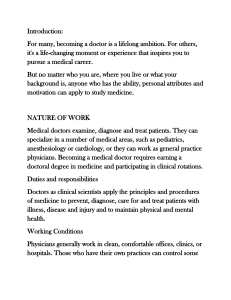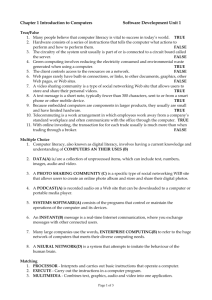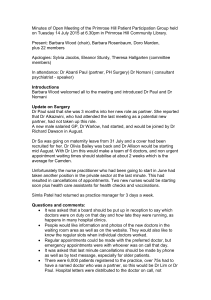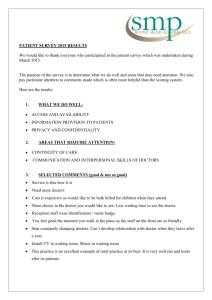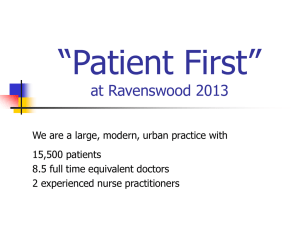Apply 5-1 Computers in Health Care
advertisement
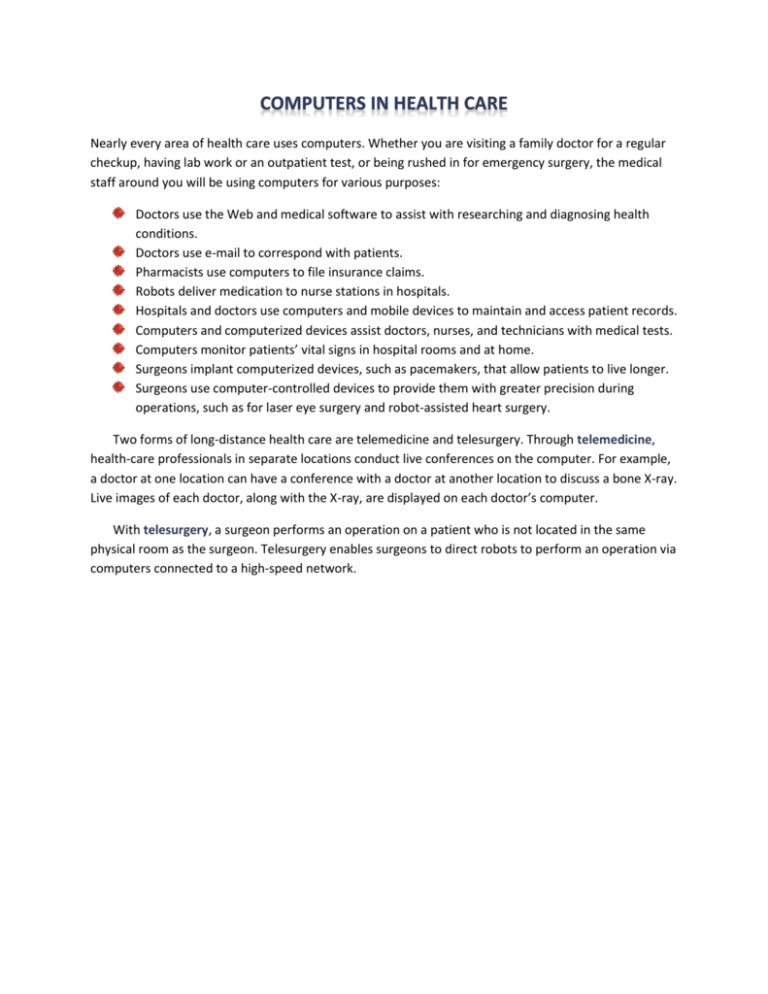
Nearly every area of health care uses computers. Whether you are visiting a family doctor for a regular checkup, having lab work or an outpatient test, or being rushed in for emergency surgery, the medical staff around you will be using computers for various purposes: Doctors use the Web and medical software to assist with researching and diagnosing health conditions. Doctors use e-mail to correspond with patients. Pharmacists use computers to file insurance claims. Robots deliver medication to nurse stations in hospitals. Hospitals and doctors use computers and mobile devices to maintain and access patient records. Computers and computerized devices assist doctors, nurses, and technicians with medical tests. Computers monitor patients’ vital signs in hospital rooms and at home. Surgeons implant computerized devices, such as pacemakers, that allow patients to live longer. Surgeons use computer-controlled devices to provide them with greater precision during operations, such as for laser eye surgery and robot-assisted heart surgery. Two forms of long-distance health care are telemedicine and telesurgery. Through telemedicine, health-care professionals in separate locations conduct live conferences on the computer. For example, a doctor at one location can have a conference with a doctor at another location to discuss a bone X-ray. Live images of each doctor, along with the X-ray, are displayed on each doctor’s computer. With telesurgery, a surgeon performs an operation on a patient who is not located in the same physical room as the surgeon. Telesurgery enables surgeons to direct robots to perform an operation via computers connected to a high-speed network.

